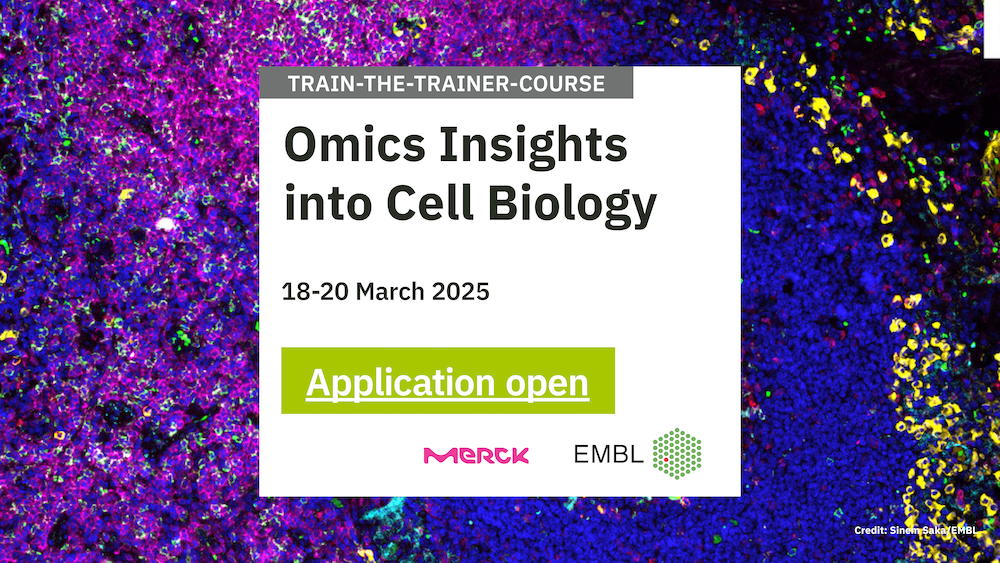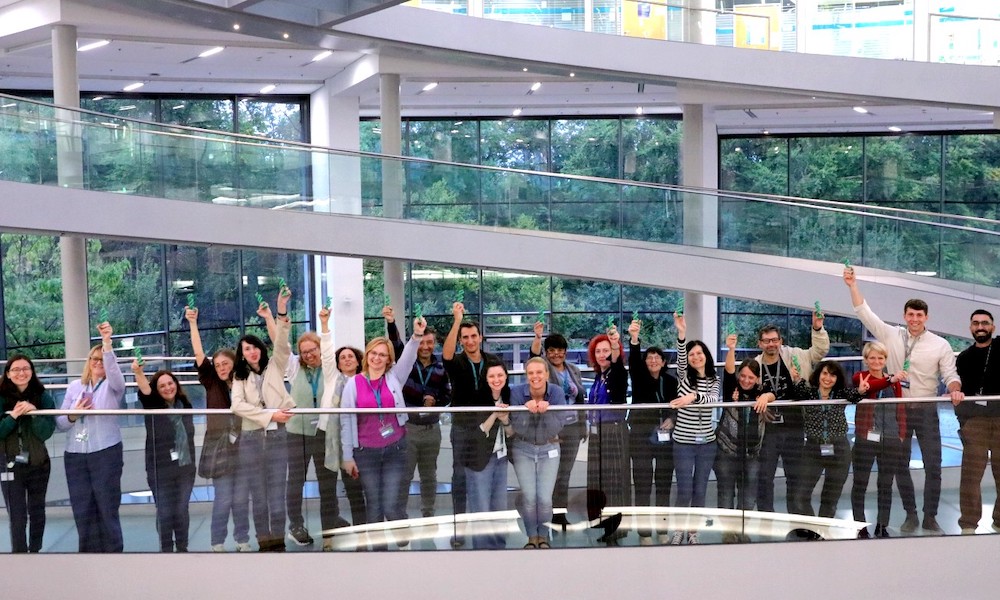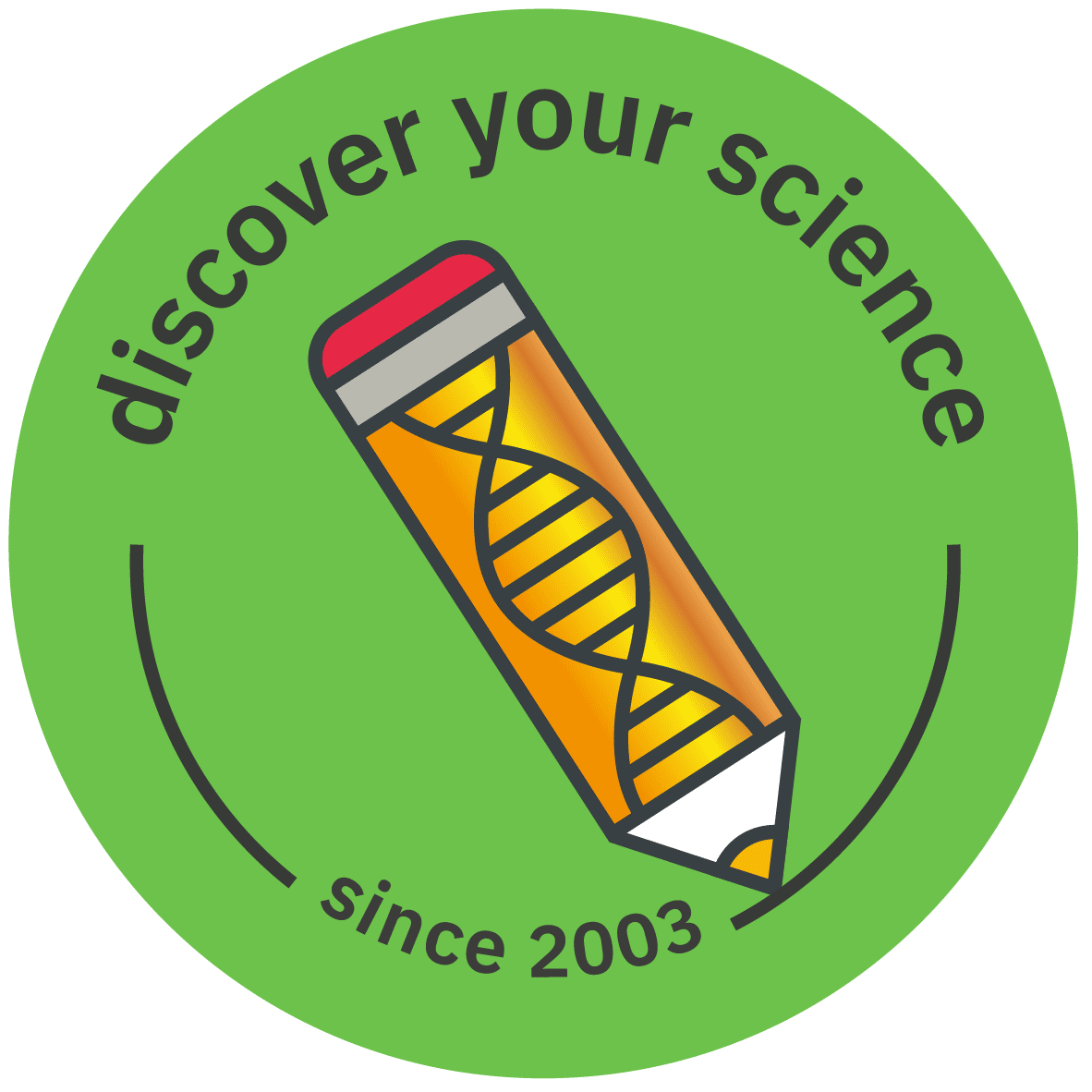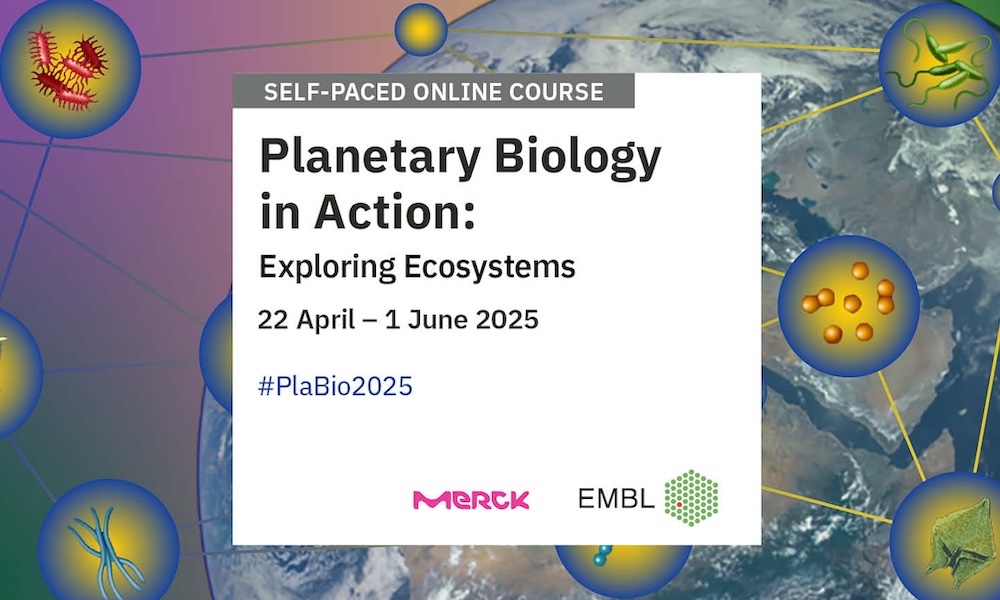
Newly-trained EMBL Teacher Ambassadors ready to share cell biology and omics insights with their communities
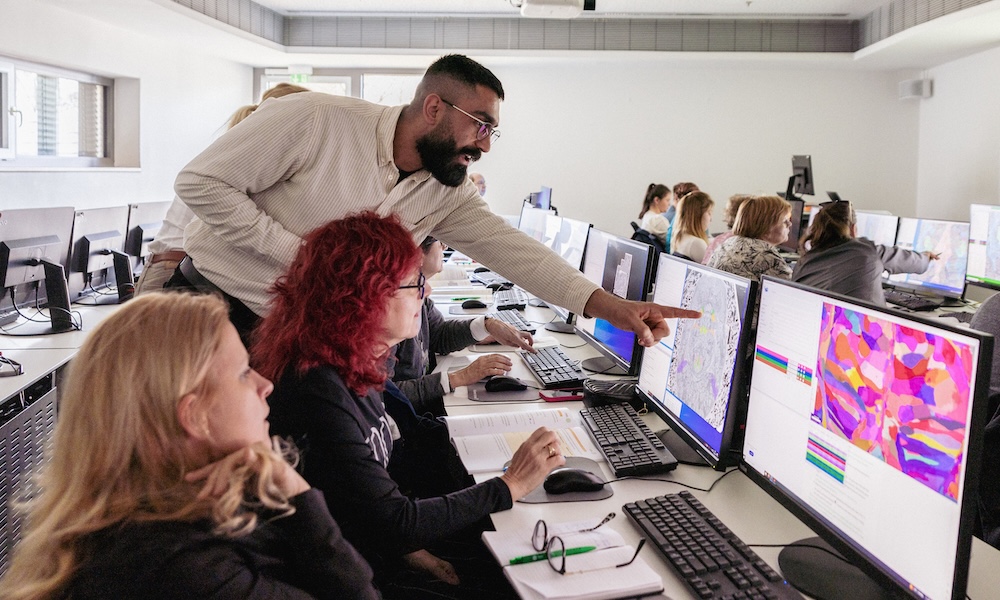
Author: Katarzyna Maria Kozlowska
Editor: Teodora Dobreva
Through its Teacher Ambassador Programme, EMBL connects STEM educators with the latest research and innovative teaching resources to ensure advancing scientific knowledge for the benefit of society. This unique initiative supports teachers, informal educators, and teacher trainers in bringing cutting-edge life science knowledge to their communities. By offering up-to-date scientific insights, practical teaching resources, and a support network, the programme is helping to improve how science is taught and learned at an international and national level.
Becoming an EMBL Teacher Ambassador
The journey begins with a train-the-trainer course – this year titled “Omics Insights into Cell Biology” – held at EMBL in Heidelberg, Germany, in March 2025. Twenty enthusiastic STEM educators from 15 European countries took part in the 2.5-day event, diving into key topics in cell biology and omics through engaging talks by EMBL scientists.
Jan Ellenberg introduced participants to the world of cell biology using advanced imaging to show how cells work at different levels. Next, Matteo Spatuzzi gave a clear overview of omics techniques – powerful tools that play a key role in today’s molecular biology. Kristy Ou spoke about how changes in cell signalling can turn cancer into a more aggressive disease, helping educators understand how omics and cell biology play a role in cancer research. Muzamil Khan shared how scientists study pulmonary fibrosis, showing how model systems are used to better understand and treat the disease.
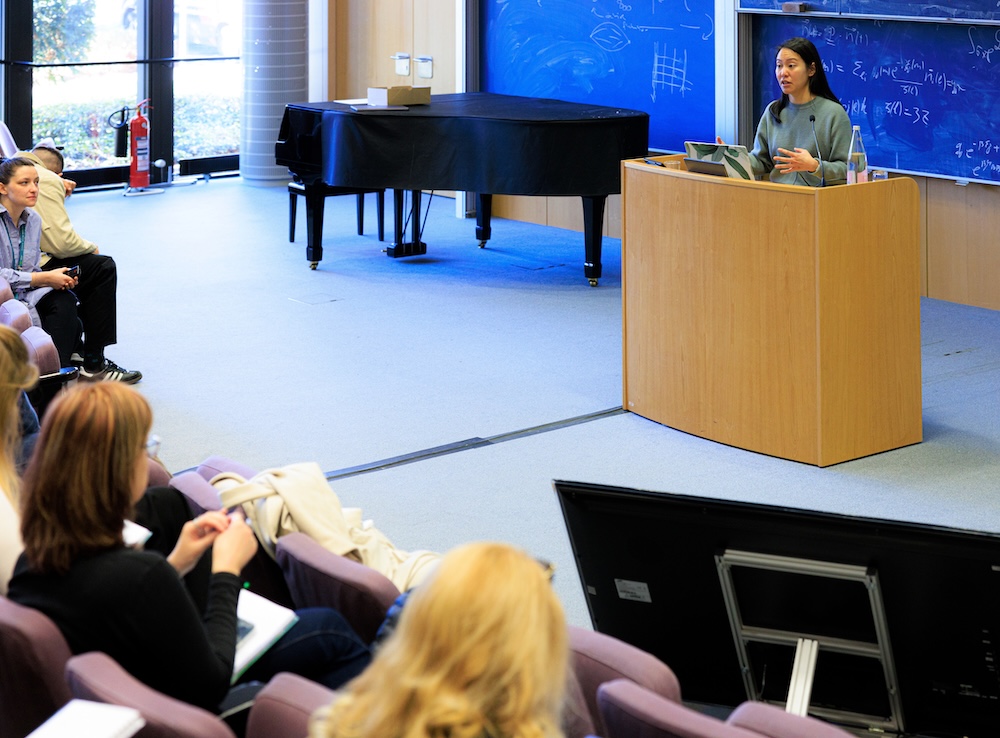
Alongside the talks, participants explored EMBL’s new educational resource, “A journey through levels of organisation“. The classroom-ready resource features activities that use real microscopy data to help students understand how cells and tissues look under a microscope, how they function and how genes are expressed in the larvae of a marine worm, Platynereis dumerilii. Working together, the teachers used digital tools to uncover connections between digestion, cell structure, and gene activity.
Building a community
The programme is not just about learning and training – it is about building a community. During the course, educators and organisers got to know each other on a personal and professional level. Participants enjoyed discussing their background, taking part in a quiz challenge, playing a fun cell biology bluffing game, sharing teaching tips and strategies and discussing the future of the Ambassador programme.
One of the highlights was visiting EMBL’s labs: in the Saka Lab, Kristy Ou showed how she uses research equipment, and at the Advanced Light Microscopy Facility, participants tried out some of the latest microscopes with help from Martin Fritsch and Vishwachi Tripathi. The group also enjoyed informal chats over dinner in Heidelberg’s old town, helping to build professional connections.
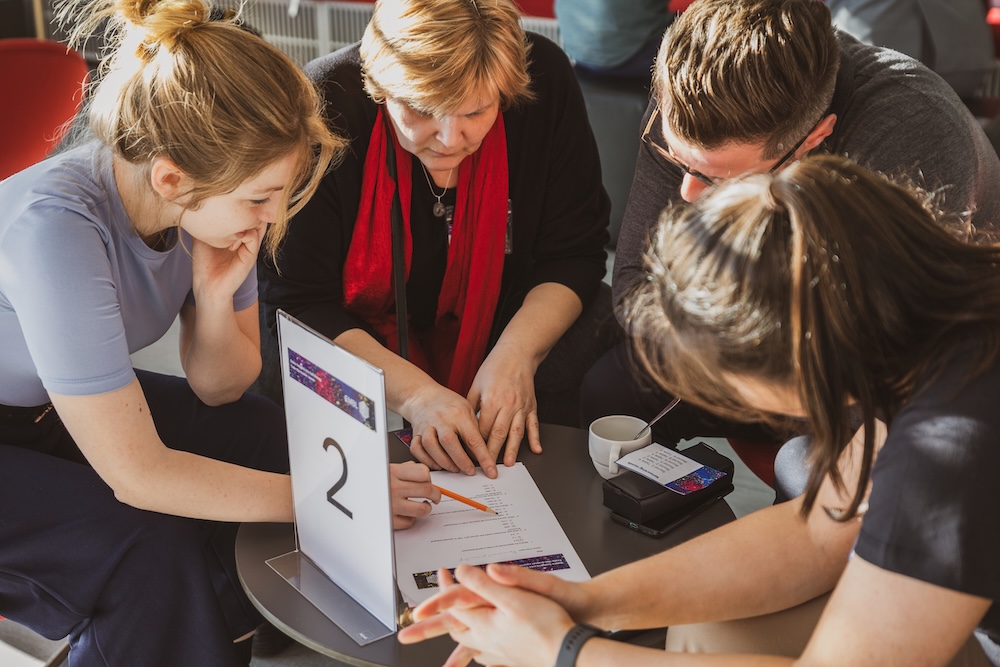
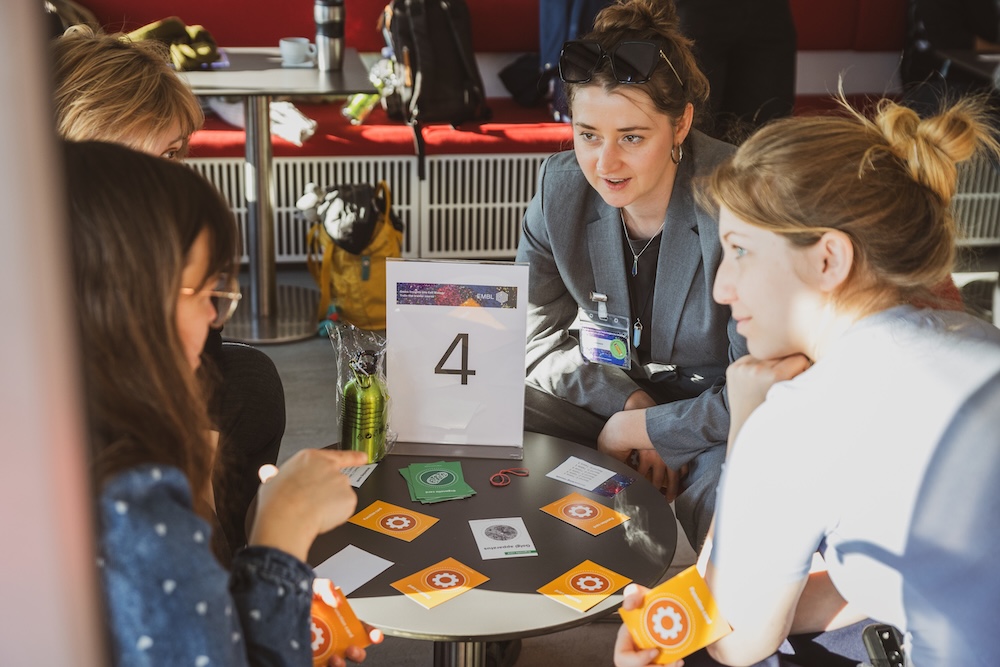
Bringing knowledge home
The educators who took part in the course are now official EMBL Teacher Ambassadors, equipped and supported to run EMBLconnect courses (local courses) in their own countries and languages. With access to teaching materials, recorded scientific talks, and ongoing support from EMBL, they can train other teachers and share new resources within their communities. Many left the course feeling inspired and energised, with one teacher saying, “It was really useful to update our knowledge on current research. It made me love science even more and gave me the motivation to share this with other educators.”
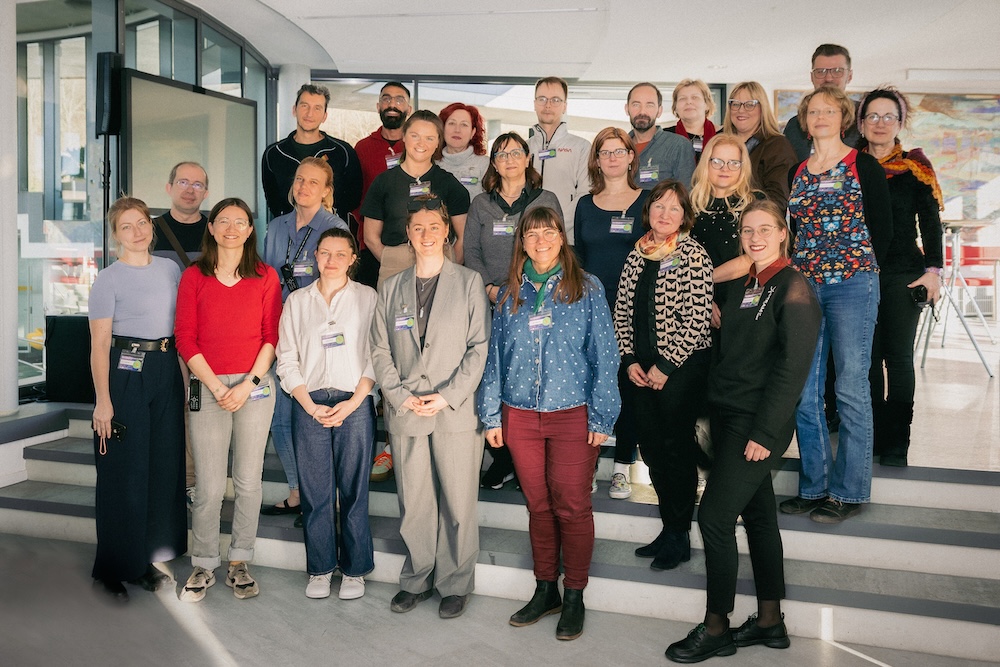
The programme impact
EMBL Teacher Ambassadors do not just deliver training – they act as links between EMBL and their local teaching communities. They share new resources and opportunities, helping more teachers and students benefit from high-quality science education. This benefits the Ambassadors themselves, their schools, and the wider education community by providing free access to excellent professional development and up-to-date teaching materials.
At the heart of it all is a shared mission: to build a vibrant network that supports science educators and inspires students across Europe and beyond.

